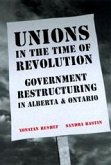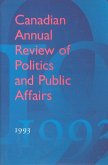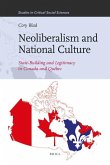After 1867, for almost a hundred years, Canada was able to leave unresolved certain key constitutional questions. However, many of these issues have recently returned to the surface. One in particular--the role and place of Quebec--threatens to tear the country apart. Why was this issue avoided for so long, how has Canada tried to deal with it, and what is to be done now? This book explores these and other questions in light of Canada's constitutional past and political present.
In this volume, David Thomas interprets Canada's ongoing constitutional crisis from a new and unusual perspective. Maintaining that 'constitutions conceal as well as reveal', he explores the notion of constitutional abeyances developed by British scholar Michael Foley. Canada's abeyances-deliberately murky areas of irresolution, unsettlement, and ambiguity-were long buried under the Constitution Act of 1867. This Act avoided clear statements on many of the new country's most intractable issues, in particular, the status of Quebec. The author traces how and why an acceptable 'settled unsettlement' of this and other key abeyances lasted for almost a century. He also reveals what happens when abeyances-the 'constitutional undead'-are disinterred. He analyses when, why, and how the abeyance of Quebec's status finally surfaced in the face of rising Quebec nationalism. He then carts the various failed attempts (including the Pepin-Robarts Report and the Meech Lake and Charlottetown Accords) to overtly define or constitutionalize Quebec's distinctiveness.
In this volume, David Thomas interprets Canada's ongoing constitutional crisis from a new and unusual perspective. Maintaining that 'constitutions conceal as well as reveal', he explores the notion of constitutional abeyances developed by British scholar Michael Foley. Canada's abeyances-deliberately murky areas of irresolution, unsettlement, and ambiguity-were long buried under the Constitution Act of 1867. This Act avoided clear statements on many of the new country's most intractable issues, in particular, the status of Quebec. The author traces how and why an acceptable 'settled unsettlement' of this and other key abeyances lasted for almost a century. He also reveals what happens when abeyances-the 'constitutional undead'-are disinterred. He analyses when, why, and how the abeyance of Quebec's status finally surfaced in the face of rising Quebec nationalism. He then carts the various failed attempts (including the Pepin-Robarts Report and the Meech Lake and Charlottetown Accords) to overtly define or constitutionalize Quebec's distinctiveness.







